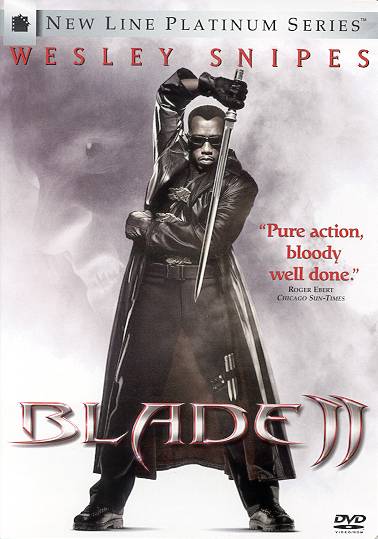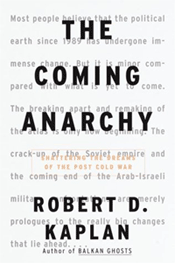Ahh – if anything could draw me from my 9-month blogging hiatus it is the patriotic love of country that can only be inspired by her Independence Day and unmitigated xenophobia as only Hollywood could perpetrate.
49 years ago today, the proud nation of Nigeria threw off the shackles of British tyranny (I know my American friends know what I’m talking about, right? My Canadian and Scottish friends, you can dream) and all was right in the land. For 3 whole years. Then a coup, then a presidential assassination in the next one, and before we knew it we were at each others’ throats in civil war (once again – my American friends, right?). As great opportunity, resources and wealth were squandered by greed and uncurbed stupidity, the glory of October 1, 1960 was lost and steeped in irony.
You see, the Brits see ‘relinquishing control’ slightly differently from the rest of us. It’s like hijacking a plane and, after the pilot dost protest much for several hours, you relinquish control – but only after you’ve ripped out the instrumentation panels, set a collision course for a high-rise and jumped out, taking all the parachutes with you. Yes, the colonial masters were worse than terrorists. They were dicks.
‘Nigeria’ was never meant to exist in its current form (and certainly not with that name, which Lord Luggard’s no-doubt put-upon and hilariously fat, bored bride conjured from ‘Niger Area’). The Brits – and other self-serving globetrotting Western powers – had a fondness for drawing up borders for shits and giggles, regardless of history or tribal relations, and then fucking around with the power structure to keep the savages in line (which worked brilliantly in post-Belgium Rwanda). Nigeria was a powderkeg waiting to erupt. Heck, there should be accolades for still managing to function @ this time. It’s like the Empire State Building remaining aloft even though they built the foundations of bamboo standing in quicksand.
You’d think we’d at least not be horridly put upon after the West made us touch our toes before pantsing us and drilling us senseless for resources. Hollywood though would rather ignore this, as racial stereotypes are far more fun than actually being honest and empathetic.
The Shield, the best cop show since Homicide (and the best drama on TV in a decade) saw Mackey and friends on the trail of some Nigerians in Season 4 who had been contracted to kill a couple of cops. ‘Contracted’ being a hypothetical term, since these guys didn’t quite strike me as being literate enough to sign a contract.
Then came Commander-In-Chief, a show that inspired so much support for having a tough female president that everyone gleefully overlooked insipid and nonsensical plotting and Donald Sutherland criminally wasted as an abrasive Speaker of the House who flaunts his sexism the way people do their Bentleys. In the pilot, Madam President forces the Nigerian Prime Minister (we have a President, people) to hand over a girl sentenced to death under Sharia law for adultery. But Wikipedia calls out the show on a host of glaring inaccuracies, never mind the fact that that has so far not happened under Sharia law, which is only adopted in a handful of ‘rogue’ states (I wasn’t kidding when I said this wasn’t supposed to be one nation). When Wikipedia is more accurate than you are, it’s time to move on to where your skills will be better appreciated. Like chartered accountancy.
This half-baked piece of Hollywood rewriting history had Nigeria in a modern-day civil war, and so Bruce Willis leads a fistful of Marines in to save Maria Bellucci from being raped by savages (can’t have a mixing of the species, no can we?) and in the process risks life and limb to save the last prince of the Igbo people from the pursuing militia (tireless automatons that make Orcs look personable). There are so many, many things wrong here. When 24 tried the whole ‘heroic white man saves helpless Africans from murdering Africans’ they were sensible enough to make up the generic country Sangala. It shows how ruthlessly idiotic that Tears (and Hollywood) are if they are less culturally sensitive than a show that takes pride in proving the most reliable (if un-PC) way to curb terrorism is to eradicate Islam and Arabs.
The otherwise entertaining – if heavy-handed and cartoonishly violent – District 9 gets it all wrong when it slips from allegorical to horrifyingly xenophobic. Tears really only wanted to shoot shit up real good, and didn’t care where – or who – it was. That’s narrow-minded insensitivity, ignorance and more than a dash of rampant stupidity. District 9 proves that’s child’s play by going out of its way – jeopardizing story, characterization and plot – to take a liberal (and libelous) shit on Nigeria.
It’s made a lot more disturbing by the fact that Blomkamp, the director, is a white South African, meaning he either is comically aloof of the racial tensions that exist within his country and the continent at large, particularly concerning a very injurious history that South Africa and Nigeria are on opposite, but equally damaged, ends of the spectrum of, or he’s a modern day D.W. Griffiths. Which is fine cos, as Hollywood will let you know, Griffiths was a genius. And, as George Clooney will let you know, Hollywood’s highly progressive (they gave an Oscar to a black woman! For playing a maid!). The fact that Birth Of A Nation is racist propaganda that argues the segregation of (and dangers from) black people should not cloud its epic scope and technical achievement. After all, that’s what art’s all about.
Now excuse me while I go lobby for Mein Kampf to become required reading for ages 6 thru 12.







